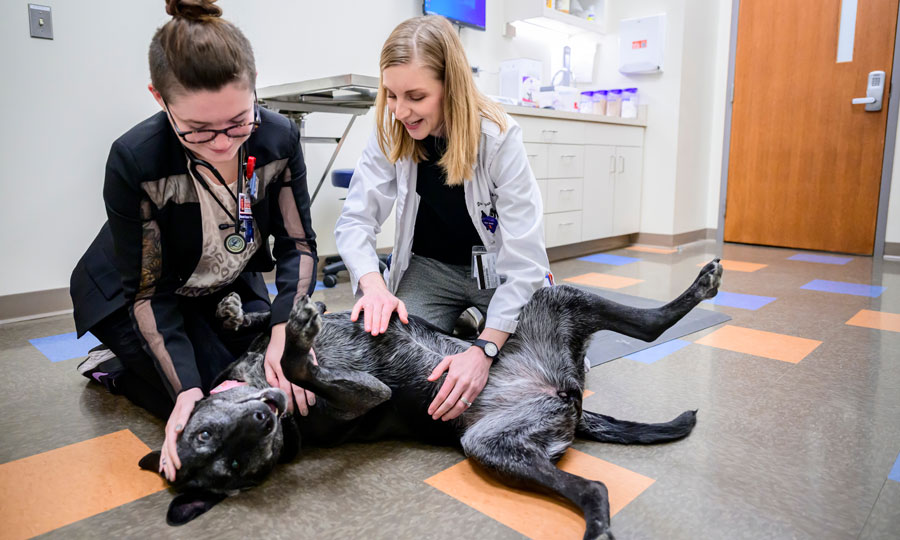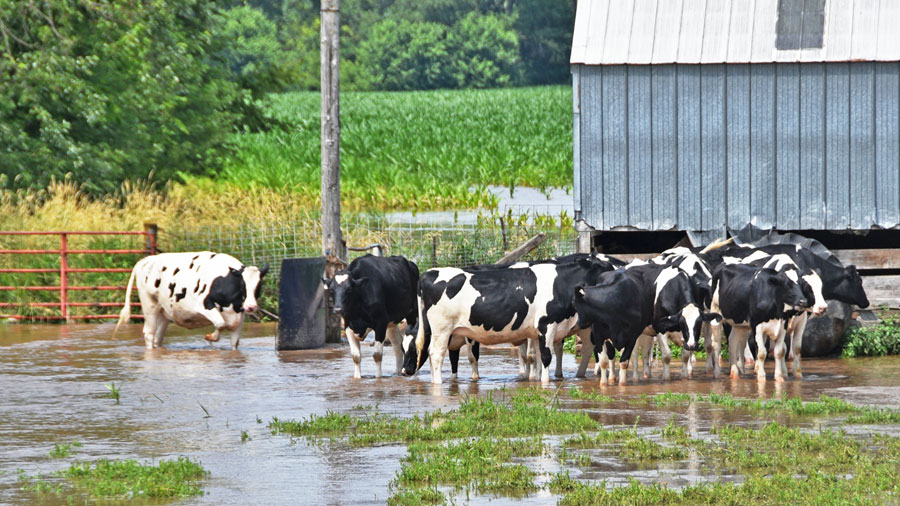Pet Ownership Benefits People
“One Health” is a term used to convey the interdependence of human, animal, and environmental health. In their recent book, Beyond One Health: From Recognition to Results, coeditors Drs. Jack Herrmann and Yvette Johnson-Walker, faculty members at the University of Illinois College of Veterinary Medicine, devote an entire chapter to the ways humans and pets influence each other’s health status—in good ways and bad.
“Pets are an integral part of the family,” says Dr. Johnson-Walker, a veterinary epidemiologist. “More than 65 percent of U.S. households have at least one pet, and 30 percent of dog owners and 61 percent of cat owners in the U.S. and Australia report sleeping with their pets. These close relationships present both risks and benefits to the humans involved.”
Pets Improve Owner’s Physical and Mental Health
The book’s chapter entitled “Reigning Cats and Dogs,” by Sandra L. Lefebvre and Robert V. Ellis, cites many studies documenting positive health changes, such as increased levels of physical activity and a decrease in the incidence of allergies and asthma, associated with pet ownership. Other studies have found an association between pet ownership and reduced blood pressure, lower triglycerides, and improved cardiovascular health.

Photo by L. Brian Stauffer
In addition, mental health benefits have been documented. Pet ownership is associated with reductions in loneliness and depression. These findings have contributed to the rising popularity of animal-assisted therapy for residents of nursing homes and patients with AIDS, heart failure, or other debilitating chronic illnesses.
These benefits do not come without risks, however.
“Injuries from bites and scratches and trip and fall accidents must also be taken into consideration, as well as the risk of infectious disease transmission,” Dr. Johnson-Walker says. “Fortunately, pet owners can take steps to minimize these risks and ensure that the benefits of pet ownership far outweigh the risks.”
People Are Responsible for Their Animals’ Well-Being
Far less research has been devoted to humans’ impact on the health of companion animals, though some studies have shown that pets can benefit from their interactions with people. For example, petting has been demonstrated to reduce stress and stressful behavior in dogs.
According to Lefebvre and Ellis, the Five Freedoms of Animal Welfare provide a context for evaluating the needs of companion animals:
- Freedom from hunger and thirst
- Freedom from discomfort
- Freedom from pain, injury and disease
- Freedom to express normal behavior
- Freedom from fear and distress
“When pet owners meet these needs, their pets enjoy an optimal quality and length of life,” says Dr. Johnson-Walker.
While life expectancies for both dogs and cats in the U.S. have increased over the past decade, when these minimum requirements are not met, the household environment can result in health and behavioral problems and increased stress in the pets and their owners. Neglect, excessive confinement, social isolation, and animal hoarding may have negative impacts on the welfare of companion animals. Lack of physical activity and a calorie-dense diet often result in overweight and obesity in pets, with related chronic health problems and impaired animal welfare.
Pet owners bear the responsibility for ensuring the well-being of their animals.
Anticipate, Minimize Health Risks
Dr. Johnson-Walker offers this list of questions for people who are considering getting a pet, regardless of species:
- Do I have the time and resources to provide for the physical, psychological, and behavioral needs of this pet throughout its lifespan?
- Have I researched the nutritional, housing, exercise, social, and healthcare needs of this pet?
- Is there another species/breed/age/temperament of animal that will better meet the needs of my household?
- Are any members of my household (i.e., the very old, young, immune-compromised, or pregnant) at increased risk of injury or illness due to exposure to this pet?
- If so, have I taken the appropriate steps to minimize this risk?
The take home message is this: “Pets and pet owners have a great potential to enhance each other’s lives. Each contributes to the physical, emotional, and social well-being of the other. As pet owners, we must act to minimize the risks so that we can enjoy the benefits that pet ownership brings to humans and animals alike.”
If you have questions about the benefits and consequences of human-pet interactions, contact your local veterinarian.
By Hannah Beers

![[Nearly one-third of US dog owners sleep with their pet]](https://vetmed.illinois.edu/wp-content/uploads/2021/04/pc-one-health-johnson-walker.jpg)


